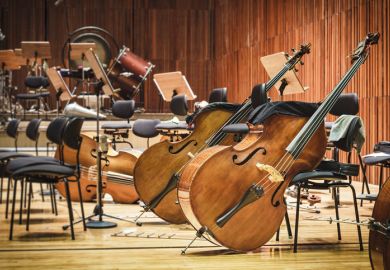David Crosby was not the most talented musician in the Californian country rock scene covered by Barney Hoskyns's excellent book, but he was a kind of barometer for its rapid evolution. In 1967, he was the hippest troubadour in Los Angeles. The supergroup he co-founded, Crosby, Stills and Nash (with the addition from time to time of Neil Young), went on to enjoy phenomenal success, both critical and commercial. But by the mid-1970s they were a byword for internecine warfare and he was suffering from cocaine addiction, struggling with a dilemma he later framed thus: "If rock was the soundtrack of disenfranchised, rebellious youth, what did it mean to be a pampered millionaire in your early thirties?"
Some might see the gradual corruption of this movement as loaded with cliche and tragic inevitability. It is to the credit of Hoskyns that he probes so carefully, through extensive and well-sourced interviews, how this generation constructed "a post-surfing 'Southern California' of freeway dreams and denim sex", but in achieving triumphant success disintegrated into excess and artistic burnout. Waiting for the Sun , a previous book by Hoskyns, surveys the whole history of postwar music in Los Angeles; here, he focuses on a now unfashionable time and place.
Crosby, "a lecherous teddy bear with a playful brain", epitomised the brash, hedonistic side of the 1960s counterculture. For a while, no one was better connected; a former member of The Byrds, he was a creative catalyst, as comfortable in San Francisco as in the new Los Angeles scene based around Laurel Canyon. "He had this legendary VW bus with a Porsche engine in," recalls Jackson Browne, "and that summed him up - a hippie with power!" Dennis Hopper is said to have modelled his Easy Rider character on him, down to the walrus moustache.
Crosby's supergroup of three (or four) singer-songwriters created music that characterised the Canyon aristocracy: melodic, largely acoustic, harmonies to the fore, and imbued with folk and country, in contrast with the blues-based hard rock predominant in northern California and Britain.
The movement also took in Joni Mitchell, James Taylor, Linda Ronstadt, Carole King, Gram Parsons and The Eagles. They shared homes, lovers, corner stores and record labels. At one remove were other LA-based singer-songwriters, including Randy Newman, Glen Campbell, Jimmy Webb and Tom Waits. It was a rare concentration of talent. Shadowing them, as Hoskyns shows, were prescient record company executives and managers, including David Geffen, Elliot Roberts and Irving Azoff, who made fortunes for the artists and for themselves.
This new breed of musicians seemed self-obsessed, baring their most intimate feelings in their art: Hoskyns calls Young's After the Gold Rush "a definitive statement of patched-denim sensitivity". Partly, it was a matter of pulling back from the revolutionary change of 1964-68. There was fear in the air in Los Angeles, particularly after the Charles Manson killings in 1969. Partly, too, they reflected change in most Western societies. The Me Decade was upon them.
Not everyone was fond of the movement. Fellow Laurel Canyon resident Frank Zappa, cynical about hippies, abhorred what he saw as its fake-sensitive commercialism, as well as its drug taking and monoculturalism. Many have blamed it for giving birth to the bland adult-oriented rock that dominated American radio by the mid-1970s.
Utopia soured. A close, supportive scene in Laurel Canyon transformed into an isolated elite, pursuing an unfettered hedonism and exhibiting an insularity that, at times, merged into paranoia. Young, explaining his move to a ranch outside Los Angeles, said: "I like the country better. Somebody's comin' at ya, you can see 'em."
Oliver Craske is the author of Rock Faces and recently edited John Robb's Punk Rock: An Oral History .
Hotel California: Singer-Songwriters and Cocaine Cowboys in the LA Canyons, 1967-1976
Author - Barney Hoskyns
Publisher - Fourth Estate
Pages - 316
Price - £14.99 and £8.99
ISBN - 0 00 717704 6 and 717705 4
Register to continue
Why register?
- Registration is free and only takes a moment
- Once registered, you can read 3 articles a month
- Sign up for our newsletter
Subscribe
Or subscribe for unlimited access to:
- Unlimited access to news, views, insights & reviews
- Digital editions
- Digital access to THE’s university and college rankings analysis
Already registered or a current subscriber?



